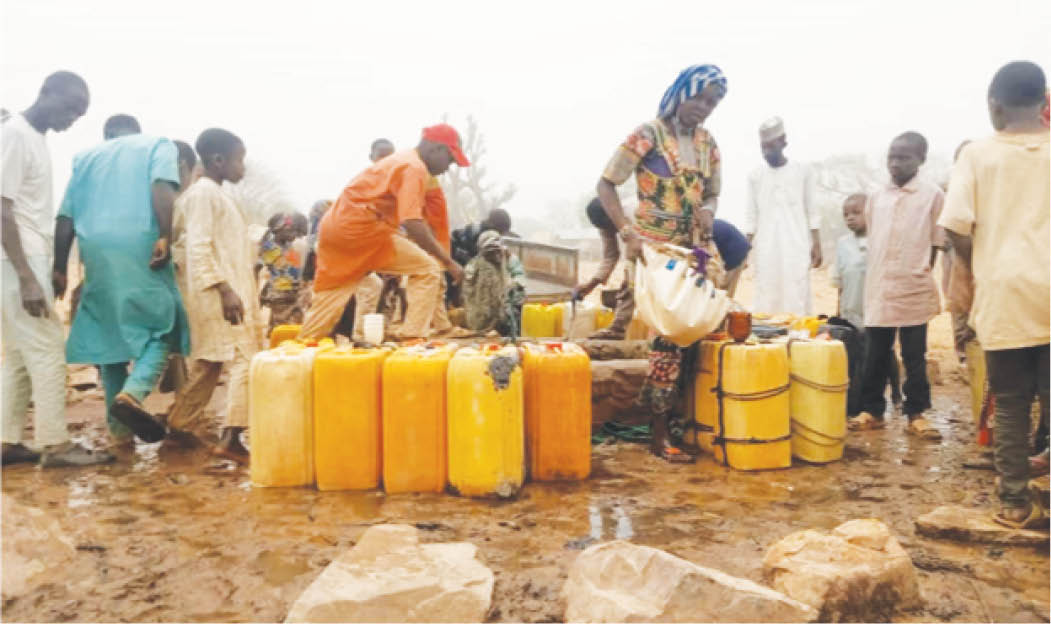Lack of potable water worries Kano communities
Despite the importance of water to human survival, residents of several communities in Kunchi Local Government Area of Kano State have to travel a long distance and spend many hours in queues before they could get some for their daily requirement. During a visit led by the Centre for Information Technology and Development (CITAD), residents […]

Long queue at at the well in Kwardakwalle Shuwaki serving about 20 neighbouring communities.
Despite the importance of water to human survival, residents of several communities in Kunchi Local Government Area of Kano State have to travel a long distance and spend many hours in queues before they could get some for their daily requirement.
During a visit led by the Centre for Information Technology and Development (CITAD), residents of the area told Kano Chronicle that access to water had always been part of their major challenges.
Water scarcity is among the reasons that forced communities of Shuwaki, Gwarmai, Baji, Limamai, Agalawa, Kuku, Gwadama, Gwalaida, Kargo and Hayin Malamai in the area to rely on a well that was constructed at Kwardakwalle Shuwaki community for their survival.
The Village Head of Baji, Malam Umaru Salisu, said they used to travel least five to seven kilometers every day before they could get water to drink.
Similarly, the Ward Head of Gwalaida, Malam Haruna Dan Zubairu, lamented that constant fetching of water was a setback to their children’s education as they often abandoned school to search for water.
He said: “Neighbouring villages surrounding Gwalaida usually trek all the way to Kwardakwalle to fetch water from a well, despite the long distance.”
Yahuza Muhammad Kuku, a resident of Kuku community, who spent hours on a queue waiting for his turn to fetch water from the well, said the communities face a serious problem with access to water, to the extent that some of them had to sleep in the queue.
He explained that they had done all they could and complained about their situation to the relevant authorities but all to no avail.
Abdullahi Mustapha, a resident of Shuwaki community, lamented that water scarcity was one of the reasons that forced them to migrate to other places in search of a better life.
The residents called on governments, at all levels, as well as nongovernmental organisations to come to their aid by providing them with alternative sources of water to ease their suffering.
